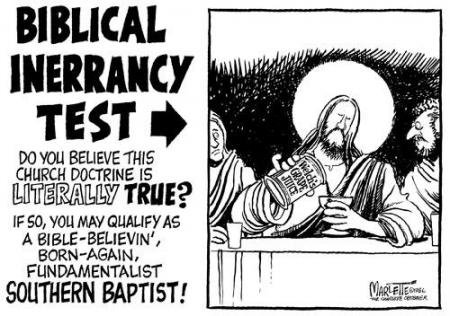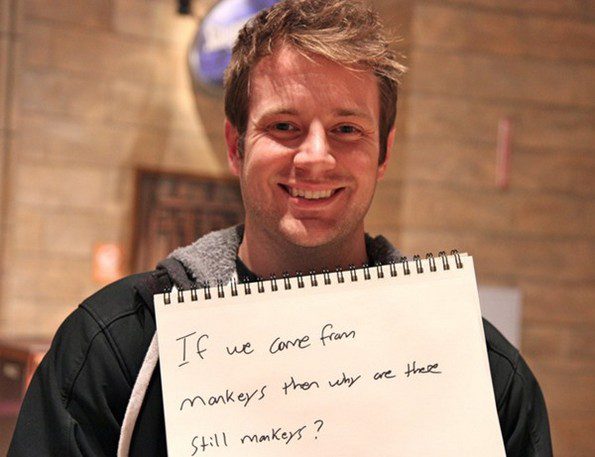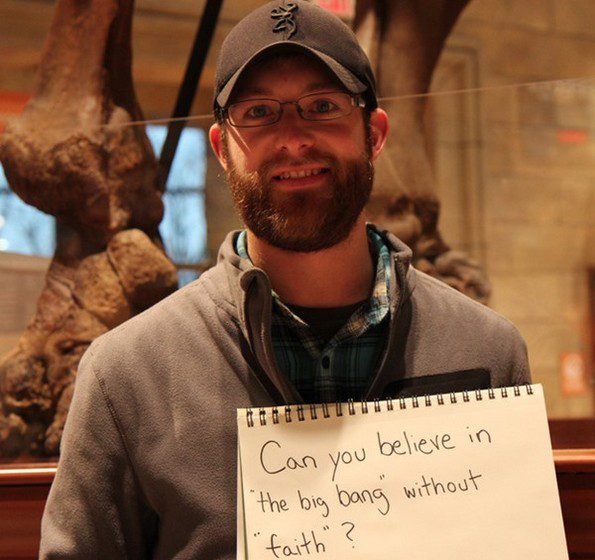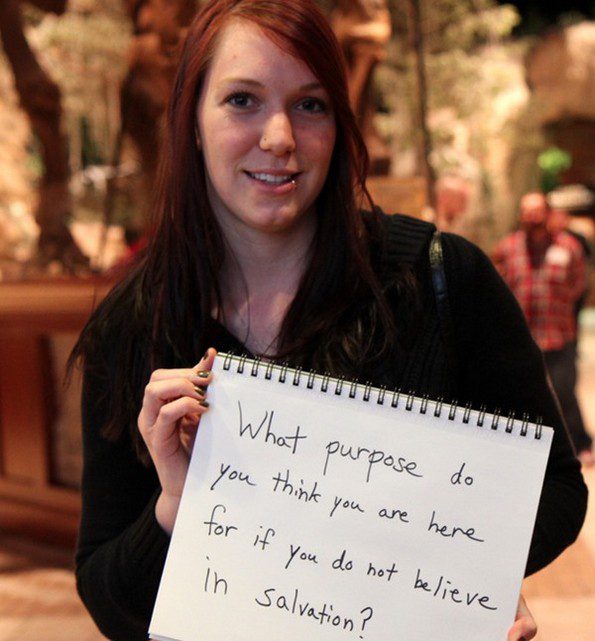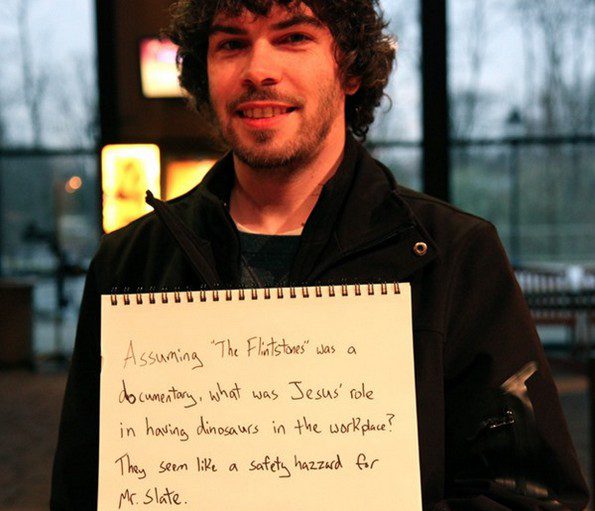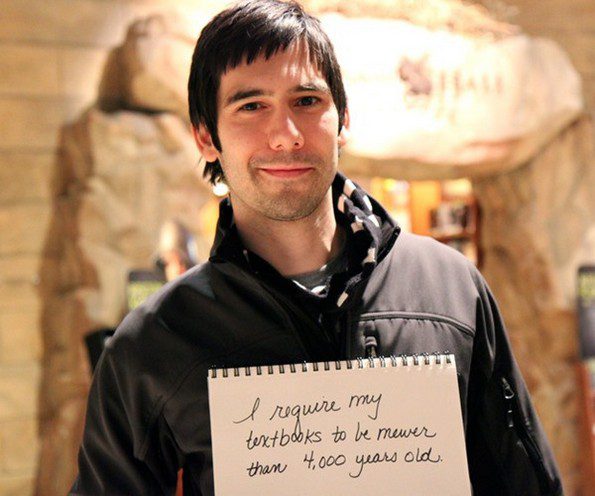
A guest post by Wayne
I started life as an atheist and was pursing a career in the sciences. During my first year of university, I had a personal crisis trying to find my direction and purpose in life. A friend witnessed to me and I attended church service a couple of times, but did not find anything to sway my atheistic view. However, it was a really emotional and stressful period in my life and I eventually decided to give god one more shot and attended what I thought would be my last day in church.
My recollections of that fateful day are very hazy. I was not even paying any attention to the service as my life was in turmoil and I was wrestling with my rational mind and my spirituality. Eventually, I decided to just do what I thought was right. Christianity was not for me and I was going to sever my ties. To this day I do not know what happened, but god must have heard my cries and I somehow ended up at the altar accepting Christ.
Needless to say, I had a lot to learn and had to make a lot of adjustments to follow this new direction in life. I had doubts about my sincerity. How can I reject god and still end up accepting him? I concluded that god had set me on this journey because I wanted to do the right thing. Therefore, I decided to cast away my doubts and do things his way and rely on faith.
To show my commitment, I decided to get baptized. Just before being submerged, I remember telling god that he alone knows my heart and that this was my way of showing that I was putting my trust in him. After my baptism, as I was changing in the backroom, I mysteriously broke down into uncontrollable crying. Several people knelt next to me and prayed for me but no one was able to stop my crying. One of the church officials stood fast and stayed by my side the whole time to comfort me. When exhaustion finally stopped my crying, he told me that I must really love god for him to touch me in such a way. When I left and checked the clock in my car, I realized that I had cried for well over an hour. I no longer had any doubts about my sincerity and knew I was doing what was right.
My life had changed completely. My ambition in life was simple. I wanted to do god’s will and to raise a family. Science was no longer compatible with my new-found spirituality and way of thinking. Therefore, I changed my studies at university to pursue a career in education to avoid conflict. Life was good and I had a purpose. I became even closer with the friend who had brought me to Christ and ended up marrying her. I found a job as a teacher where I lived at a time when it was virtually impossible to do so. At church, I had found my calling and was a Sunday school teacher.
The first major test of my faith was when my wife’s first pregnancy ended up in a miscarriage; in my fundamentalist belief, this is the same as the death of a baby. To add insult to injury, it happened on Christmas Day. If god had said that I was not to have children, I could have lived with that. However, it was more painful to have the seed planted and then have it taken away. I felt like Abraham sacrificing my child for god; only in my case, there was no reprieve. I did a lot of soul-searching and made sure my life was right with god and told him it was his will and not mine. I was totally devastated, but my faith was stronger than ever.
When my wife was pregnant the second time, I was sure that god would bless us as I had remained true to him. The unthinkable then happened. We had another miscarriage on Easter Sunday. The anguish was so severe I contemplated killing myself. The only thing that stopped me was the vision of my wife exhausted and asleep in the hospital bed. I remembered my vow of love to stay by her through thick and thin and knew that I had to endure. God was using adversity to send me a message. Many months of confusion, guilt and shame ensued as I tried to figure out what I was doing wrong in my life. What was god trying to tell me? Were my motives contrary to his will? Did I love my wife more than him? Was I really sincere in my walk with him? Was my ambition of wanting a family not in god’s plans? All I wanted was to do the right thing. I had been tested again, but I had promised to trust him and I again stood firm in my resolve.
However, there was a difference this time. I studied the bible more rigorously and reassessed my faith and started to touch the boundaries of the fundamentalist box I had put myself in. What if I was wrong? Fear kept me from exploring that question for a long time. I looked back and remember that I had asked the same question when I was an atheist. If I never confronted the question, I would not have found god. It was a question I must explore again if I wanted the truth and do what is right. I took tiny steps to remove my fundamentalist blinders and looked outside my box, and the world opened up in a totally different way.
For the first time in my Christian life I started to look outwards instead of inwards and saw the world and the people around me without my fundamentalist mentality. I finally saw people as people. We are all on our own personal journeys in life. God and spirituality meant different things to different people. The bible is not inerrant, it is a record of the search for god by people of the past. We all interpret our holy texts and ethics according to our own limited perspective and experiences. The Holy Spirit guides and moves us all in a different manner based on our own personal interpretations. We are all different and god did not intend us to be Christian zombies shambling mindlessly to convert others who were not like us. With this revelation, my whole perspective as a Christian shifted.
At this time, many other major events started to take their toll on me. I was no longer the fundamentalist I once was and felt trapped. My marriage started falling apart and I was secretly struggling with the beginning stages of depression from all the strain. I knew I had to leave the fundamentalist chains that bound me. Fear and uncertainty set in. Can I just walk away from almost ten years of my life? What will happen with my fundamentalist wife who I love so dearly? What about my friends at church? After a year of struggling, I was on the verge of a complete meltdown. My integrity did not allow me to maintain the charade of being a fundamentalist any longer. I again told god that I must do what I feel is right and I will trust him to lead me as he had done in the past. I had a long talk with my wife and we mutually agreed that the best course of action was to leave church temporarily to reassess our lives.
With that freedom, I was finally completely outside my box and began to explore. This was the days before the internet and finding information was no easy task. My first secular book was “Isaac Asimov’s Guide to the Bible”; don’t laugh as it was the only resource available at the local library at the time. In a few days, I learned more from that book than I ever did in church. There was no looking back for me. My thirst for knowledge increased and I even started exploring other religions. When my pastor checked up on me a few months later, it was obvious I had moved on. I have no hard feelings about my church. There were some good honest people including the pastor that I really respected and appreciated. My time was not completely wasted, and there are many good things that I will always take with me. However, there were also a lot of the crazy stuff and I had to leave the lunatics and the narrow mindset behind.
I left church almost 25 years ago now. I am still motivated by finding the truth and doing what is right. There is no need for me to go into details of my journey from this point since those of us who had similar experiences will know what will ultimately happen when one chooses to open one’s mind; I grew up and left god behind. Unless some real evidence shows up to the contrary, I personally believe that there is no god especially as put forth by the various religions. A person’s belief in or lack of belief in god is no longer a concern for me. What is important, is whether or not someone is a good person.
Although I am back to being an atheist again now, I have a new non-religious spirituality in me. I feel a closer spiritual connection with the world as a result of my experiences. As such, I actually prefer to label myself as an agnostic. My ambition in life still remains the same except I have taken the god part out and shortened it to raising a family. Yes, there is life outside of religion and my relationship with my wife did not collapse as I had feared; love, trust and respect are even more powerful without their religious trappings. I also have two wonderful children who are just about ready to leave the nest and choose whichever path their own life dictates. My advice to them will be “Keep both your heart and your mind open in order to do that which is right”. That is what I learned from my own journey there and back again.
“Colors of the Wind”
…
You think the only people who are people,
Are people who look and think like you,
But if you walk the footsteps of a stranger,
You‘ll learn things you never knew, you never knew.
…
And we are all connected to each other,
In a circle, in a hoop that never ends.
from Disney’s Poncahontas.

